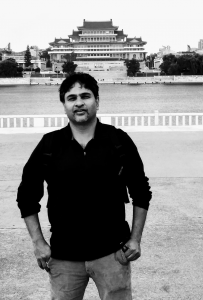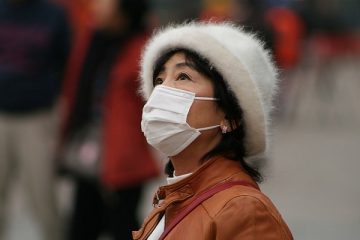IRES Seminar Series
Time: 12:30pm to 1:30pm (every Thursday)
Location: AERL Theatre (room 120), 2202 Main Mall
**********************************************************************************
Local Air Quality, Global Climate Change and Development: Shall the twain meet?
Abstract:
Global climate change and local air pollution both result from the combustion of fossil fuels and biomass. In addition to their local impacts, air pollutants also influence the global radiative balance. Some local pollutants such as Black Carbon particles (BC) and Ozone contribute to heat trapping while others such as Sulfate Aerosols cool the global atmosphere. The idea that that there are common sources of air pollution and greenhouse warming has led analysts to search for ‘co-benefits’, i.e., ways of reducing air pollution that secondarily help meet climate reduction goals, or conversely, meeting climate goals while improving local air quality as an attendant consequence. The co-benefits framing is particularly attractive for developing countries, because it suggests a ‘win-win’. In this ‘win-win’ framing of the problem, developing countries can improve air quality – an important short term development goal, while reducing radiative forcing of the planet and contributing to longer term climate goals. This talk examines the validity and usefulness of a ‘co-benefits’ framing in a major developing country. I use India – a country that is the world’s fourth largest emitter of GHGs, and also one facing severe and often catastrophic air pollution – to examine the scope of the air pollution challenge that India faces and to assess the extent to which there is, in fact, a climate/air quality win-win.
Bio:

Milind Kandlikar
Professor, IRES
Professor, Liu Institute for Global Issues
Milind Kandlikar is Professor at IRES and the Liu Institute of Global Issues. He works at the intersection of technology innovation, human development and the environment, and his current projects are in two thematic areas. First, his work on the risks, benefits, regulation and social acceptance of emerging bio and nano technologies includes research on differences in expert and lay understanding of risks, expert judgment tools for assessing novel risks, and new/novel regulatory challenges of emerging technologies. He also works on the science, policy and politics of biotechnologies in the developing world, and more recently, on the emerging challenges of gene editing and gene drives. His second area of work relates to climate change in the developing world – including climate co-benefits from air quality improvements, climate finance and adaptation, and assessments of ‘development friendly’ technologies such as off-grid solar and improved cook-stoves. Milind has also published extensively on the science and policy of climate change including: on the role of uncertainty in scientific assessments and climate mitigation policy; on questions of detection and attribution of climate change; on modeling agricultural adaption in industrialized and developing countries. He is a visiting professor in the Climate Studies Program at the Indian Institute of Technology (IIT) Bombay, and was a Reid Fellow (2012-13) at Princeton University. He has been a contributing author to four reports of the IPCC. He has a Bachelors from IIT Bombay and a PhD from Carnegie Mellon University.

Photo credit: Global Panorama from flickr/Creative Commons